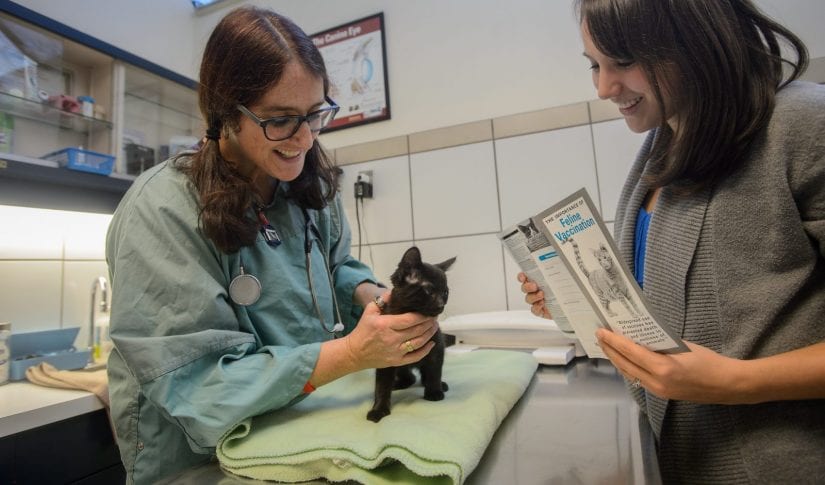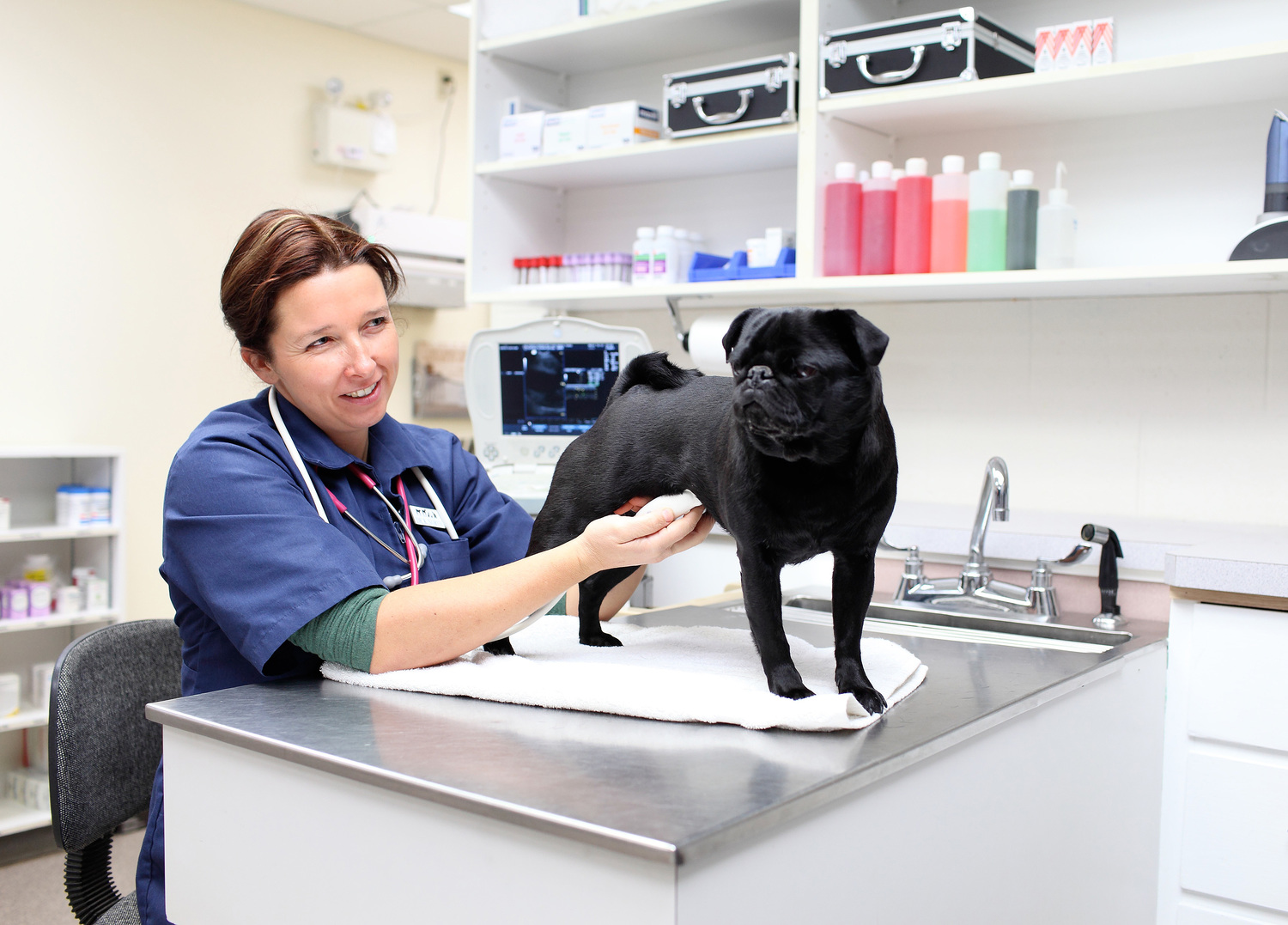Just How a Veterinary Specialty Hospital Can Heal Your Pet dog's Disorders With Advanced Techniques
Veterinary specialty hospitals play a vital role in resolving intricate health concerns in pets. They utilize innovative strategies and modern technologies that enhance medical diagnosis and therapy. With access to specialized solutions, animal owners can locate customized options for their animals' conditions. This increases vital concerns regarding the particular methods used and the benefits they offer. Recognizing these elements can significantly influence an animal's healing trip.
Comprehending the Role of Veterinary Specialty Hospitals
Key care vets provide important solutions for pet health, veterinary specialty hospitals play an important role in attending to complicated medical conditions that call for advanced diagnostics and therapy. These centers are outfitted with specialized technology and experienced specialists that concentrate on details areas of vet medication, such as oncology, neurology, and cardiology.
Veterinary specialty hospitals assist in a collective strategy, usually operating in combination with a pet dog's primary veterinarian to produce extensive treatment strategies. They provide access to advanced imaging methods, such as MRI and CT checks, which are not generally available in basic centers - Learn More. Furthermore, these hospitals provide intensive treatment units for seriously ill pets, making certain continuous tracking and assistance
Specialized Services Used by Veterinary Experts
Veterinary specialists offer necessary solutions that enhance animal medical care, especially via innovative diagnostic imaging techniques. These tools allow exact assessments of complex clinical problems, leading to extra reliable targeted treatment strategies. By incorporating these specialized solutions, vet hospitals can greatly improve client results and total well-being.
Advanced Diagnostic Imaging
Advanced diagnostic imaging plays an important role in modern-day veterinary medication, making it possible for specialists to obtain detailed insights right into an animal's wellness. Methods such as X-rays, ultrasound, calculated tomography (CT), and magnetic resonance imaging (MRI) enable vets to visualize interior frameworks without invasive procedures. These sophisticated imaging techniques aid in identifying a variety of conditions, from fractures and growths to body organ irregularities. By giving clear images, they improve the precision of analyses, which is vital for reliable therapy planning. Additionally, specialized veterinary radiologists analyze these pictures, ensuring that refined concerns are not forgotten. Eventually, advanced analysis imaging contributes in providing comprehensive treatment, as it permits very early detection and intervention in a pet dog's medical concerns.
Targeted Therapy Plans
Targeted therapy strategies are vital for attending to the certain health and wellness demands of pets, making certain that each animal obtains personalized care customized to its distinct condition. Veterinary specialists develop these strategies based on extensive assessments, consisting of advanced diagnostic imaging and laboratory examinations. By concentrating on the private pet dog's diagnosis, way of life, type, and age, specialists can suggest efficient treatments, ranging from drug modifications to medical interventions. These plans also incorporate follow-up treatment and checking to track the pet dog's development and make essential adjustments. This technique advertises ideal outcomes and improves the overall high quality of life for animals dealing with intricate health challenges. Ultimately, targeted therapy strategies represent a dedication to giving the highest requirement of vet treatment.
Advanced Diagnostic Techniques for Accurate Diagnoses
As pet dogs encounter progressively complex health and wellness obstacles, the combination of sophisticated analysis techniques has ended up being crucial for accomplishing precise medical diagnoses. Veterinary specialty hospitals make use of cutting edge imaging innovations, such as MRI and CT scans, to picture interior structures with exceptional quality. These methods enable vets to determine abnormalities that might not be visible through typical techniques.
In enhancement to imaging, progressed research laboratory tests, including hereditary and biomarker analyses, give vital understandings right into underlying conditions. These tests make it possible for veterinarians to discover conditions at earlier stages, assisting in timely intervention (Learn More). The use of endoscopy enables for direct visualization of inner body organs, assisting in the diagnosis of respiratory and intestinal problems.
Ingenious Therapy Choices for Facility Conditions
Innovative treatment choices for intricate problems in family pets have emerged as an important emphasis within vet specialty hospitals. Using cutting-edge analysis tools, these centers improve their capacity to identify issues properly and customize ideal treatments. In addition, the application of minimally invasive procedures and progressed rehab methods uses pets a far better possibility at healing with reduced pain.
Cutting-edge Diagnostic Tools
While the landscape of veterinary medicine remains to develop, cutting-edge diagnostic tools have actually become essential properties for dealing with complicated problems in pets. These advanced technologies, including electronic imaging, ultrasound, and molecular diagnostics, permit vets to obtain accurate details about a family pet's health and wellness condition swiftly. High-resolution imaging methods can reveal elaborate information of internal frameworks, allowing accurate analyses of illness or injuries. Additionally, genetic testing supplies understandings into hereditary conditions, guiding customized treatment plans. By leveraging these ingenious analysis devices, veterinary specialty hospitals can boost their capability to identify conditions that may have previously gone unseen. Inevitably, these advancements add to boosted outcomes and improve the overall high quality of treatment offered to beloved animals.
Minimally Invasive Procedures
Improvements in vet medicine have actually paved the way for minimally invasive procedures, which provide brand-new therapy alternatives for intricate conditions in pet dogs. These cutting-edge techniques, such as laparoscopy and endoscopy, permit vets to perform surgeries with smaller sized incisions, decreasing trauma and healing time. By using specialized instruments and cams, veterinarians can detect and treat issues like lumps, food poisonings, and joint problems with precision. This approach lessens pain and leads to quicker healing, making it possible for animals to go back to their normal activities sooner. Veterinary. In addition, minimally invasive procedures typically result in much less scarring and a lower threat of problems. As veterinary specialty hospitals adopt these sophisticated approaches, pet dog owners can really feel extra confident in their animals' care and general health
Advanced Rehabilitation Techniques
As vet medicine progresses, progressed rehab methods are becoming essential for handling intricate conditions in animals. These methods incorporate a reference series of innovative therapy choices, consisting of hydrotherapy, laser treatment, and physical therapy. Hydrotherapy makes use of water resistance to boost mobility and reinforce muscular tissues, valuable for pets recouping from surgical treatment or injury. Laser treatment advertises healing by decreasing swelling and discomfort, promoting quicker recovery times. Physical treatment uses targeted workouts to improve strength and flexibility, tailored to every family pet's particular needs. Additionally, modalities like acupuncture and chiropractic modifications can additionally sustain rehab by relieving discomfort and enhancing overall well-being. Veterinary specialty hospitals are increasingly incorporating these methods, ensuring animals get extensive treatment that deals with both emotional and physical recovery, ultimately enhancing their lifestyle.
The Significance of a Multidisciplinary Method
A multidisciplinary method in veterinary treatment substantially boosts the treatment outcomes for pets, as it integrates proficiency from numerous specializeds to deal with intricate health issues. This collective technique involves vets, experts, specialists, and assistance staff collaborating to formulate extensive treatment strategies tailored per pet's special requirements (Veterinary). By incorporating understanding from fields such as surgical treatment, interior medicine, oncology, and recovery, veterinarians can identify hidden problems that might or else go unnoticed
This strategy cultivates communication amongst group participants, making sure that all facets of a family pet's health and wellness are considered. An animal recuperating from surgical procedure may benefit from input from both a rehab and a specialist specialist, leading to a much more reliable recuperation process. Inevitably, a multidisciplinary approach not only enhances the high quality of treatment however likewise improves the total health of family pets, giving them with the finest opportunity for an effective recuperation and long-term wellness.
Cutting-Edge Innovation in Veterinary Medicine

With the fast development of innovation, veterinary medicine has accepted innovative tools and strategies that significantly improve diagnostics and treatment choices for pets. Advanced imaging modern technologies, such as MRI and CT scans, allow vets to envision interior frameworks with unmatched clearness, aiding in accurate medical diagnoses. Furthermore, minimally intrusive surgical strategies, supported by robotic-assisted systems, boost accuracy and minimize recuperation times for pets.
Telemedicine has actually also become an essential resource, enabling veterinarians to seek advice from animal owners remotely, thereby assisting in timely treatments. In addition, the integration of man-made knowledge in evaluating clinical information adds to more reliable treatment strategies customized to specific needs. Sophisticated lab tools permits for quick blood evaluation and pathogen discovery, promoting prompt clinical reactions. As vet specialty hospitals remain to integrate these improvements, they not just enhance the high quality of care yet likewise substantially enhance the total well-being of pet dogs.
Success Stories: Real-Life Instances of Family Pet Recovery
Various heartfelt success stories illustrate the exceptional recoveries of animals treated at vet specialty hospitals. One such situation entailed Bella, a Golden Retriever identified with an extreme orthopedic problem. After sophisticated surgical intervention and recovery, Bella was not just able to stroll once more yet likewise to run joyfully in the park, much to her proprietors' joy.
An additional inspiring story features Max, a cat with chronic kidney illness. Through specialized nutritional management and cutting-edge therapies, Max's condition maintained, allowing him to regain his power and appetite. His owners were satisfied to see him return to his playful self.

Frequently Asked Questions
What Should I Expect During My Animal's Specialty Appointment?
Throughout a specialty examination, animal proprietors can anticipate a comprehensive assessment, thorough clinical background discussions, diagnostic examinations, and tailored therapy choices. The veterinary professional will certainly offer insights and suggestions for the family pet's certain health and wellness requirements.
How Can I Locate a Veterinary Specialty Hospital Near Me?
To locate a veterinary specialty hospital nearby, one can use on-line internet search engine, check regional directory sites, or seek referrals from main vets. In addition, pet owner forums can offer beneficial insights and experiences concerning neighboring centers.
Are Specialty Provider Covered by Pet Insurance Coverage?
Specialty solutions may be covered by pet dog insurance coverage, however insurance coverage varies by policy. Proprietors must meticulously assess their insurance plan information and consult their supplier to comprehend the extent of coverage for specialty veterinary solutions.

How Much Time Will My Pet dog's Treatment Take?
The duration of a family pet's therapy can differ substantially, commonly varying from a few days to several weeks - Veterinary. Variables influencing this timeline include the certain condition, treatment type, and the animal's general health and wellness and response
What Are the Prices Related To Specialty Veterinary Care?
The prices connected with specialty veterinary care can vary extensively, usually varying from hundreds to hundreds of dollars. Factors affecting these expenses consist of the complexity of the condition, required therapies, and diagnostic procedures needed for reliable care.
Veterinary specialty hospitals play a necessary duty in resolving complicated wellness issues in animals. Key treatment vets give important solutions for pet wellness, veterinary specialty hospitals play an essential duty in addressing complex clinical conditions that call for innovative diagnostics and therapy. Veterinary specialty hospitals help with a collective method, usually working in conjunction with a family pet's key veterinarian to develop thorough treatment plans. Innovative treatment options for complicated conditions in family pets have actually arised as an essential focus within veterinary specialty hospitals. A multidisciplinary method in vet care greatly improves the therapy outcomes for pets, as it integrates knowledge from numerous specializeds to resolve complex health and wellness concerns.